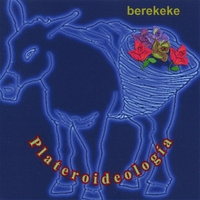Memoirs of a Damned (11)
The composer years (4)

A donkey to reclaim our nature: Plateroidelogía (Plateroideology) 2006
Rousseau said: Man is good by nature, but society corrupts him.
With this enlightening statement, Plateroideologia was born, an album that also arises from my activities with schoolchildren.
Juan Ramón Jiménez's masterful and immortal work, Platero y yo, is the perfect setting for the Frenchman's ideas. A donkey, with its naturalness, triggers a desire
to recover the best of human beings, Rousseaunian nature.
As we've already mentioned, my personal context meant everything went down the drain with my divorce. Curiously, and contrary to popular belief, it left no mark on either this or the previous album.
Obviously, there's a different focus, marked by Spanish music and semantically influenced by Telemann's masterpiece, Don Quixote.
It is a chronological work, as it covers the different chapters of the Huelva-born writer's novel. Not necessarily with the same titles. The leitmotvf of his characters and contexts abound.
The cover highlights Juan Ramón's symbolism of roses in their baskets against a blueish negative.
The album follows the path of the previous ones in every way: production, recognition, visibility, etc.
It is, like the novel, a costumbrista album, which can be recognized in each of its themes. The song of the crickets in "Concierto de los grillos" (The Concert of the Crickets), the misery in "La arruladora" (Lullaby girl), the bells and the Salve of
"Angelus". Except for the title piece, in which the reader who is me was intended to appear, and my vision and revision of Platero.
We recommend the didactic guide for more details on this album you can like in the web.
